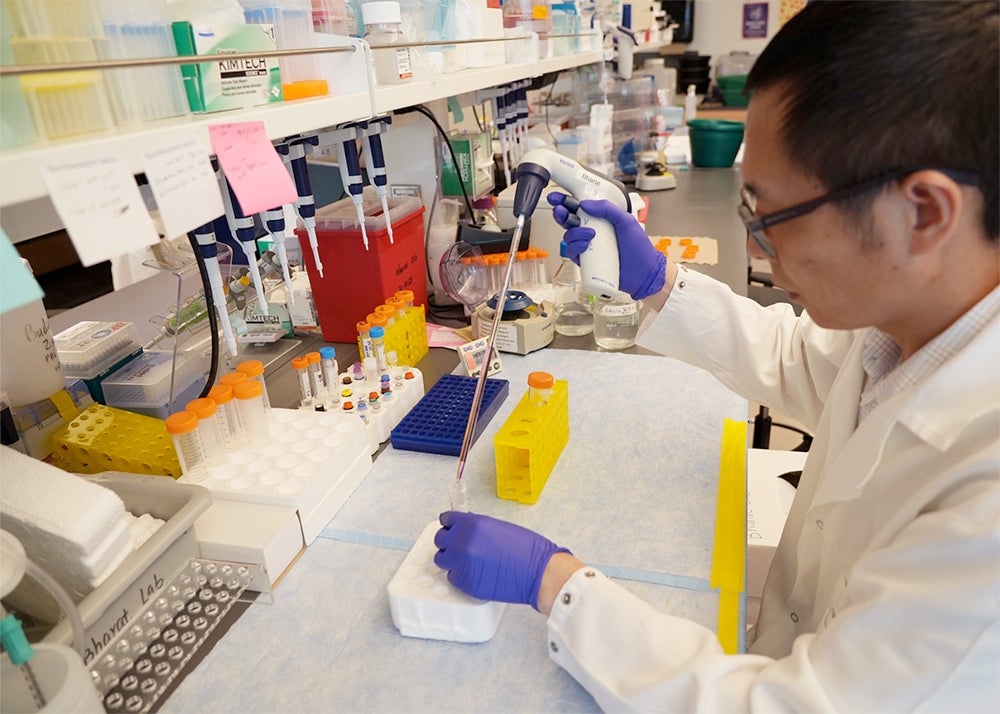Covid might cure cancer. No, you didn’t read that wrong
In a breakthrough discovery, scientists found that the same cells activted by severe Covid could be induced with a drug to fight multiple kinds of cancer
Your support helps us to tell the story
From reproductive rights to climate change to Big Tech, The Independent is on the ground when the story is developing. Whether it's investigating the financials of Elon Musk's pro-Trump PAC or producing our latest documentary, 'The A Word', which shines a light on the American women fighting for reproductive rights, we know how important it is to parse out the facts from the messaging.
At such a critical moment in US history, we need reporters on the ground. Your donation allows us to keep sending journalists to speak to both sides of the story.
The Independent is trusted by Americans across the entire political spectrum. And unlike many other quality news outlets, we choose not to lock Americans out of our reporting and analysis with paywalls. We believe quality journalism should be available to everyone, paid for by those who can afford it.
Your support makes all the difference.Illinois researchers have found an unbelievable link between infection with Covid and cancer regression where tumors decrease in size or extent.
Using animals and tissue from humans, scientists observed that the RNA molecules of the SARS-CoV-2 virus, which is responsible for the disease, triggered the development of a special cell in the immune system that has anti-cancer properties.
Known as “inducible nonclassical monocytes” or “I-NCMs,” these special cells attack cancer cells and could be used to treat cancers that are resistant to current therapies, according to Northwestern Medicine Canning Thoracic Institute scientists.
“This discovery opens up a new avenue for cancer treatment,” Dr. Ankit Bharat, the Canning Thoracic Institute’s chief of thoracic surgery, said.. “We found that the same cells activated by severe Covid-19 could be induced with a drug to fight cancer, and we specifically saw a response with melanoma, lung, breast and colon cancer in the study.”

Bharat was the senior author of the findings published last week in the The Journal of Clinical Investigation. The study was funded by the National Institutes of Health.
He said that while the research was still in the early stages, with effectiveness only studied in animals, it “offers hope that we might be able to use this approach to benefit patients with advanced cancers that have not responded to other treatments.”
The special cells could be further developed using small molecules, potentially creating a new path for cancer patients who have exhausted traditional treatment methods.
“What makes these cells so special is their dual capability,” Bharat said. “Typically, immune cells called non-classical monocytes patrol blood vessels, looking for threats. But they can’t enter the tumor site itself due to the lack of specific receptors.”
“In contrast, the I-NCMs created during severe Covid-19 retain a unique receptor called CCR2, allowing them to travel beyond blood vessels and infiltrate the tumor environment. Once there, they release certain chemicals to recruit body’s natural killer cells. These killer cells then swarm the tumor and start attacking the cancer cells directly, helping to shrink the tumor,” he explained.
More research is necessary before their findings could be used in clinical settings and likely years away. The next step would be clinical trials.
Cancer is a disease in which some of the body’s cells grow uncontrollably and spread to other parts of the body. Some types of cancer have better survivability than others. This year, an estimated 611,720 people will die of cancer in the U.S. Lung cancer is responsible for the majority of those deaths.

Join our commenting forum
Join thought-provoking conversations, follow other Independent readers and see their replies
Comments